Decoding the Robust Ascent of TEDA’s Low-altitude Economy
Currently, the low-altitude economy is becoming a new engine for high-quality economic development. In March 2024, it was first proposed in the government work report. In 2025, it was reasserted in the government work report that the safe and healthy development of emerging industries such as commercial spaceflight, low-altitude economy and deep-sea technology shall be further facilitated, which helps low-altitude economy to embrace unprecedented development opportunities. It was against such a backdrop that TEDA has explored a robust growth trail in low-altitude economy, leveraging its advanced manufacturing foundation, complete industrial ecosystem, strong innovation capabilities and high-quality business environment.

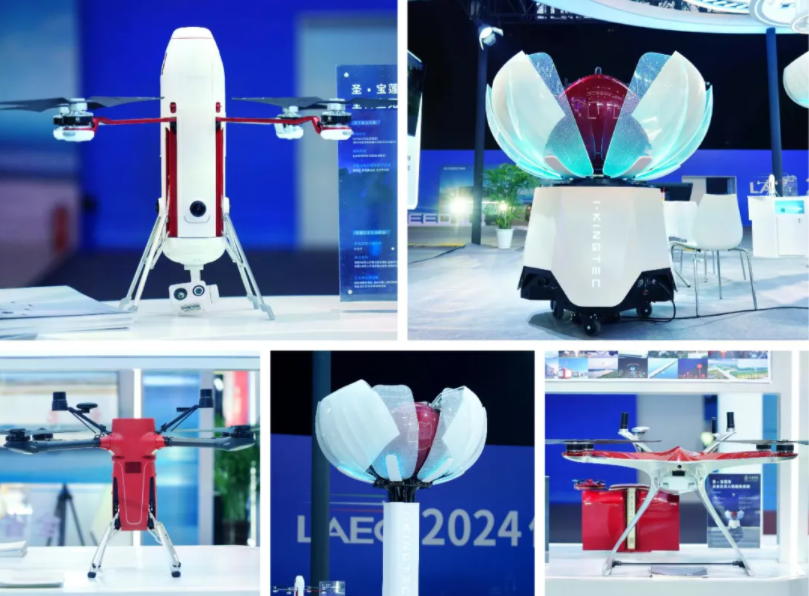
In TEDA’s low-altitude economy ecosystem, drone industry leaders such as IKINGTEC are making significant contributions to the rapid development of the industry. As a leading enterprise in industrial-grade intelligent drones, IKINGTEC has achieved remarkable growth since its settle-down in TEDA. Its independently developed integrated unmanned inspection system, which combines high-precision BDS based on IoT and 5G technology, can finish inspection tasks efficiently under extreme conditions such as extreme cold, high temperatures, and heavy rain. It can also automatically generate professional reports, providing highly efficient and intelligent solutions for various fields including power inspection, fire emergency response, urban governance, smart forestry and smart tourism. The company takes the lead in drafting the “Regulations on Autonomous Forest Patrol Operations of Unmanned Aerial Vehicles”, filling the domestic gap in the field and propels forestry patrol into a unmanned and intelligent new era. These achievements not only demonstrate the company’s technical strength but also vividly illustrate the vibrant development of TEDA’s low-altitude economy.
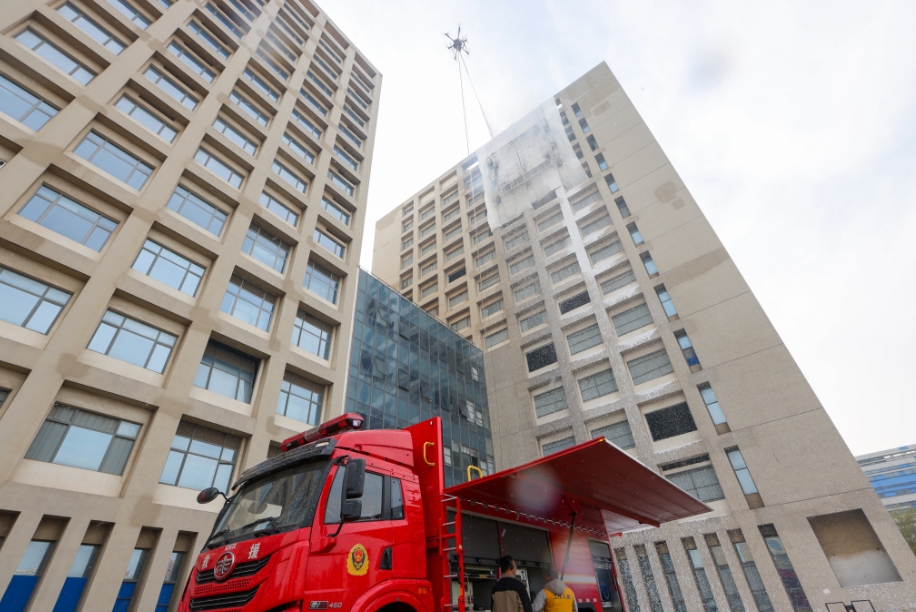
In the field of emergency rescue, TEDA has also made eye-catching achievements. In November 2024, during a showcase and delivery ceremony of air-ground coordinated tethered UAV firefight equipment, a drone developed by Xinxing Cathay International Group reached a height of 60 meters and extinguished a high-rise building fire in just 10 minutes. This equipment, with high mobility, intelligence and long hovering time, successfully cracked the industry pain points in high-rise building fires with traditional fire-fighting equipment. As TEDA deepens its cooperation with companies like Xinxing Cathay International Group in equipment R&D and emergency rescue, such advanced equipment is set to become new tool for urban safety, injecting strong momentum into TEDA’s low-altitude economy.
At present, TEDA has gathered 30 UAV companies, covering key areas such as R&D, production and operation services, forming a strong industrial synergy. The continuous innovation of UAV technologies, products and applications in TEDA provides solid support for the development of the low-altitude economy.

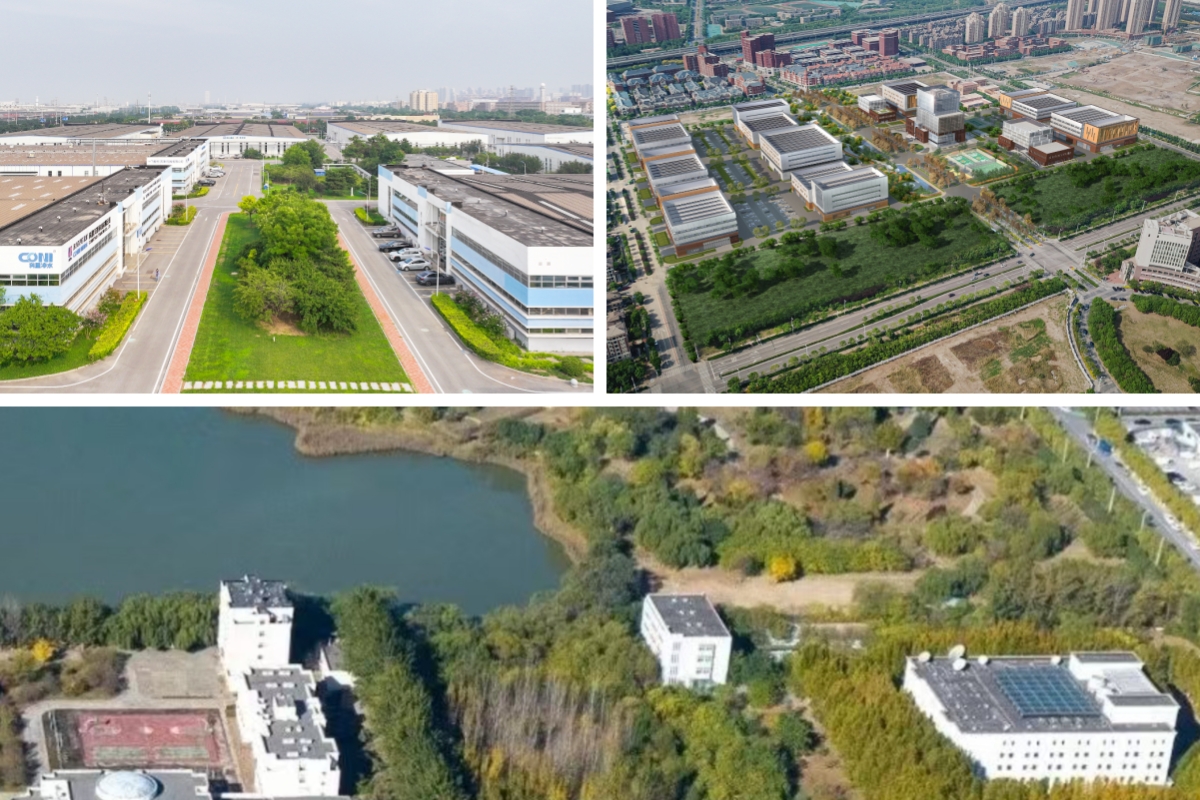
The development of the low-altitude economy relies on the infrastructure that ensures flight feasibility and safety. TEDA has made continuous efforts in this aspect and achieved visible progress. At the beginning of this year, the Beijing-Tianjin-Hebei Unmanned Intelligent Equipment Industry-Education Integration Base, with a total investment of 130 million yuan, settled down at Yat-sen Intelligence & Innovation Park in TEDA. Focusing on industry-education integration and practical training of unmanned intelligent equipment, development and testing of unmanned intelligent technologies, and professional and skilled talent cultivation, it will become an important support platform for the development of low-altitude and underwater economies in TEDA and even Tianjin. In May, the Base, together with the TEDA Intelligent Unmanned Equipment Industrial Park and the Beitangwan Digital Economy Industrial Park, was approved for drone test flight airspace. The test flight airspace, with a height of 120 meters, will include drone taking-off and landing points, communication and navigation equipment, and meteorological monitoring stations to guarantee the comprehensive safety of drone flights. This key infrastructure not only brings testing closer to production and R&D, significantly shortens the product development cycle and reduces costs, but also further promotes the improvement of the drone industry chain and accelerates industrial aggregation.
The aggregation of innovation and talent resources injects continuous momentum into industrial development. As a national base for advanced manufacturing and R&D, Tianjin boasts well-known universities such as Civil Aviation University of China, Tianjin University and Nankai University, as well as key laboratories focusing on urban air transportation and low-altitude economic communication and surveillance. These institutions provide strong intellectual and technical support for the development of the low-altitude economy. The Tianjin UAV and New Materials Talent Innovation and Entrepreneurship Alliance has gathered more than 110 drone and new materials-related companies, covering various fields such as UAV, MEMS inertial sensors, high-precision navigation and communication equipment. It has built a platform for industry-university-research cooperation to help companies enjoy policy benefits in talent introduction and technological innovation.
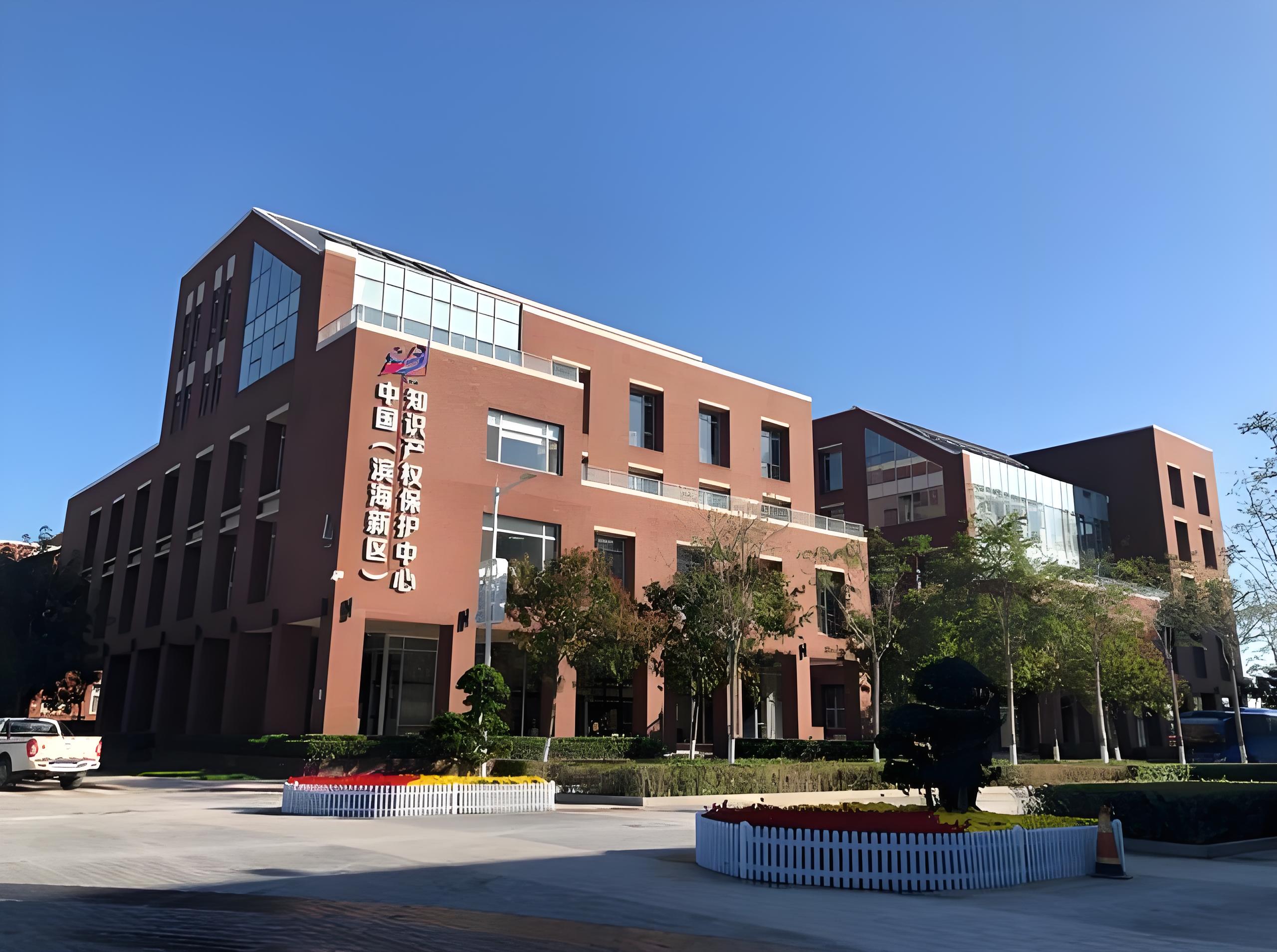
In terms of intellectual property protection, the Tianjin Binhai New Area Intellectual Property Protection Center proactively optimize their service. Working with TEDA-based IKINGTEC, it launched a patent navigation project for unmanned aerial vehicle nest, creating a collaborative innovation model highlighted by “government-enterprise interaction +technology breakthrough + patent protection”. This model builds a patent “moat” for key technologies and safeguards the innovation of low-altitude economy in TEDA.
According to Zhu Shengli, co-founder and marketing executive officer of IKINGTEC, “The preferential policies of the Tianjin municipal government, friendly environment for industry-university-research integration and Tianjin’s unique advantages in market and supply chain are key factors for the company’s decision to settle in TEDA.Tianjin is a blessed place for our entrepreneurship.”

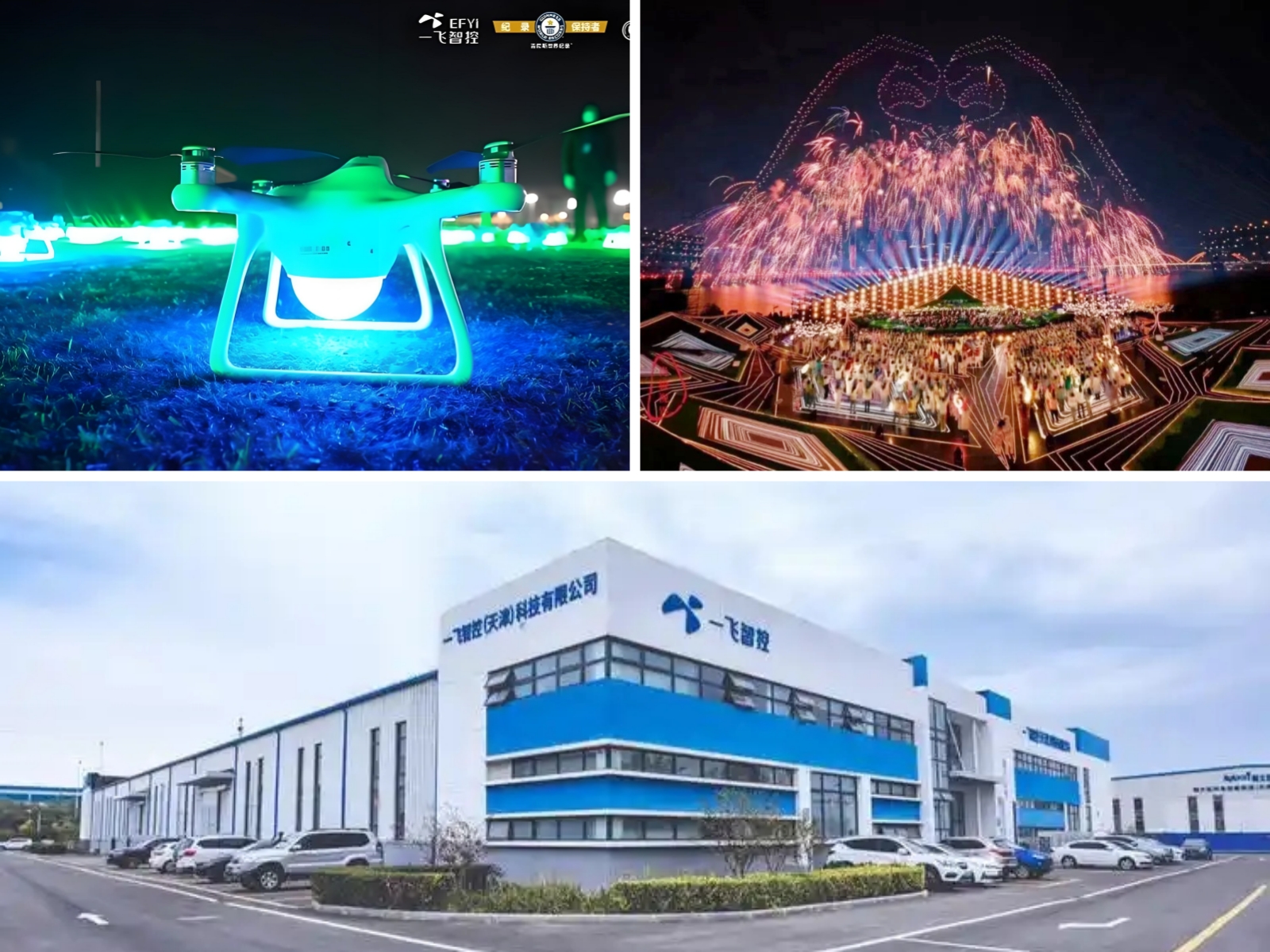
Drone companies in TEDA are not only performing well in the domestic market but also making a mark on the international stage. EFYI Group, a leading drone company born and flourished in TEDA, focuses on drone intelligent control and swarm control technology and has become a pacesetter in digital commercial applications for drone performance. Its drone formation performance business now covers 38 countries and over 200 cities, with a total of 3,000 performances, becoming a shining card for Chinese drone technology to go global.

From industrial aggregation to ecosystem cultivation and then to helping companies go global, TEDA has formed a relatively complete development chain and industrial ecosystem about low-altitude economy. In the future, TEDA will focus on fostering application scenarios such as drone logistics, drone inspection and drone emergency rescue, striving to build a low-altitude economy application demonstration zone. It will also actively explore new models for low-altitude airspace management and contribute more insights to China’s low-altitude economy.













 津公网安备 12019002000128号
津公网安备 12019002000128号

